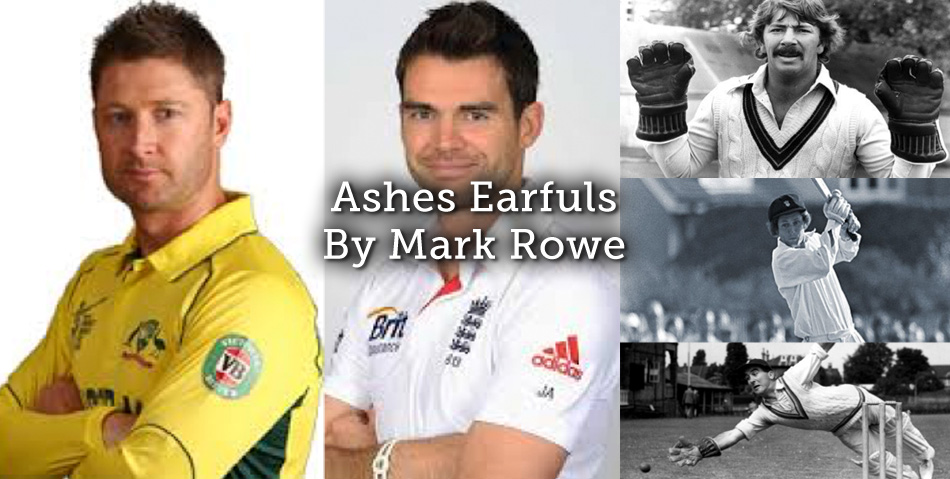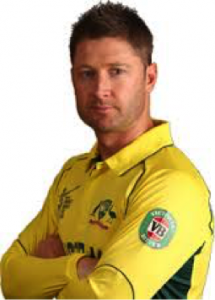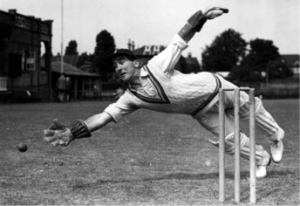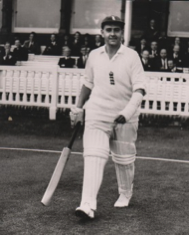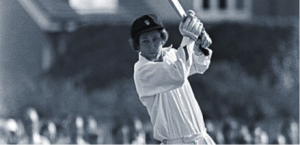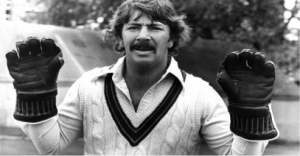England and Australia’s cricketers always bring us something interesting, when they meet. Sometimes, it’s what they do on the field. Or, one punches another in a bar, as in the summer of 2013. Or someone swears at an incoming batsman and threatens to break his arm, as Australian captain Michael Clarke did to James Anderson in the Australian summer of 2013-4.
What made Clarke’s bad manners all the more telling as a piece of occupational culture – in that strange public and yet private space, the middle of a cricket field – was that Clarke did not apologise afterwards, and the English captain Alastair Cook did not ask him to.
- James Anderson
- Michael Clarke
Manners have changed since the 1948 Test match at Trent Bridge when, as England’s then wicket-keeper Godfrey Evans recalled, the Australian captain Don Bradman dropped a catch off Evans twice in two balls. First the ball went through Bradman’s hands above his head for four, and next ball hit him on the chest. As the field moved at the end of the over, Bradman smiled and said to Evans: “I don’t mind you giving me a catch, Godfrey, but why hit the ball so darned hard?”
You could say that Bradman’s team in that match and that tour in general were so commanding that they did not have to curse and menace. However, that is not to suggest that players of the past tried less, or played less aggressively. In playing sport, and following it, it’s easy to make the mistake of believing that the louder and nastier you are, the more you show you care. One of the best-placed authorities of the century, Colin, later Lord Cowdrey, spoke in 1978 of bad behaviour as a problem, “and while I would love to see the hard competitiveness remain as it is, we ought to take out the bad language. I have played against some rough, tough Australians, such as Lindwall, Miller and Johnson, but they never once used bad language at me. They might use it about their own bad luck or to their fielders if they dropped a catch, but there would never be an earful of bad language to me or the players around me.”
That Cowdrey was speaking to a pre-season evening gathering of umpires in Hull shows how even the most successful in the game were ready to mingle with everyday cricket people, according to general manners. Are today’s players as willing (for a fee, of course)?
- Godfrey Evans
- Colin Cowdrey
As Cowdrey hinted, the change from courtesy to ‘an earful’ came in the 1970s. Cowdrey bridged both eras, having toured Australia first in 1954-5 and lastly in 1974-5 batting against Lillee and Thompson and facing Australian crowds who charmingly chanted ‘kill, kill’. Can we blame the cultural decline on the seventies, or Australia?
It’s tempting, but it will not do. Batsmen, bowlers and fielders have always spoken to each other. What we call banter, the Victorians called ‘chaff’. Or, an absence of conversation has been as loud and sinister as any words. The silence of the great West Indian fast bowlers of the 1970s to 1990s was proverbial. As the Derbyshire batsman of the 1970s Tony Borrington among others has pointed out, those West Indians did not have to speak, to terrify.
Borrington, a speaker at winter societies, has a fund of stories about his career and tells them well. He can have a room of grown men laughing at how a ball from Clive Rice hit him at Trent Bridge and put him in hospital.
His story of the Australians of 1977 – those supposed pioneers of bad behaviour – shows that men could make their point without a rude word. Borrington is to be credited for telling a story against himself, one of those stories much better heard than read.
The tourists were playing Derbyshire at Chesterfield at the end of June. Derbyshire’s captain, the South African Eddie Barlow, had warned Borrington of the Australians’ off-putting talk. So when Rodney Marsh, the Australian captain for that match, asked Borrington who he was, Borrington thought it was a trap: ‘I blanked him.’ Marsh got his own back by asking the fielders who the batsman was.
- Tony Borrington
- Rodney Marsh
Borrington was facing the spinner Kerry O’Keeffe, and didn’t know how to play a googly; hence Borrington played as if every ball was the googly. O’Keeffe’s first six to him were all leg spinners, and Borrington missed them all.
Marsh told him: ‘Me and my mate Doug [the slip fielder Doug Walters] think you might be on the wrong pitch.’
Despite that amusing insult, Borrington still could not pick the googly; though he was still in. Marsh told Borrington that Walters would whistle to warn of the googly. Walters whistled, and O’Keeffe indeed bowled the googly. And again; and Borrington played it properly. O’Keeffe bowled the ball wide, Walters did not whistle, only it was a googly; and Borrington was out. As he walked away, Borrington heard behind him a long whistle.
Anyone can swear and threaten; it takes skill to mock someone with wit.
Article © Mark Rowe

